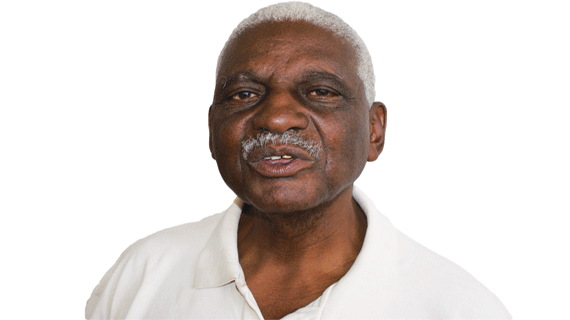
IN our last article we said that some marriage practices become abandoned because they no longer fit with the modern times.
People just stop doing them.
For example, we mentioned that umlobokazi (the bride) wayetshaya umqalo as she marched in style alongside her umyeni (groom). This march was called ukuqhobozela and she stretched and relaxed her neck rhythmically like the crane.
This was a beautiful kind of march-dance done at a wedding only. Nowadays it is only the good old ladies who were married in the forties and fifties who know how to ukutshaya umqalo.
Some traditional dances may not necessarily have been wedding dances only, but were popularised at weddings. Today how many people still know and practice ukutshitshimba?
This was an elegant body movement by a woman where she shook her body in a shivering-like style and would thus be challenging a youngman doing his dance opposite her.
This dance, like many others was accompanied by song. When the song steamed up the dance got hot and usually the boy was out-done by the vigorous gyrations of the girl.
Uyasoma wena! The major male dance was ingquzu. The singers, men and women stood in a ring and left a fairly large space inside.
- Chamisa under fire over US$120K donation
- Mavhunga puts DeMbare into Chibuku quarterfinals
- Pension funds bet on Cabora Bassa oilfields
- Councils defy govt fire tender directive
Keep Reading
The dancer took a plunge into this space and sometimes clapped his hands to encourage the singers to sing and clap their hands harder ukuze azuze amadlabuzane. Lapho-ke uzayibona into yamehlo. Umfana uzayithuza ingquzu, atshaye isizingelezane aze akhombe abakibo eTshangana.
This, of course, implies that the best ingquzu dances were found at Nkayi, eMaguswini aMnyama. When they sang “Mbambeni manina, ukuzala kuyafanana you felt as if your hair was being pulled up (inwele zisiphuka).
But all these kinds of dances which enlivened weddings are gone and only remnants here may be seen.
It is perhaps better to say that these dance practices have been replaced rather than abandoned. Wedding dances are now dominated by the jump, kick, turn, twist, skip, finger-flick, wave, shake bums, bend knee type of dance called by all sorts of names.
These modern dances are very popular and exciting to young people.
We have all along been talking about some of the marriage practices that are being relegated to the archives. Some of them are: Ukuthela lokugqizisa inyongo whereby umlobokazi was sprinkled with bile and her bridal maid was made to wear the bile sack.
We have talked about ukuqhobozela lokutshaya umqalo – all gone, so also ukudubula, “Wozalaye!” Where are all the Ndebele wedding songs and the beautiful Ndebele dances? Ezamasi-ke?
How easily the Ndebele people abandon their culture – and their beautiful and expressive language, isiNdebele sikaMthwazi. So much so that some preachers cannot preach in Ndebele.
For them the language is dull and unexpressive – it is not God’s language, He does not understand it. It’s amazing how the young people, especially from the “Spirit” churches cannot pray in Ndebele.
They have been so indoctrinated! Please God release them.
Some practices still flicker dimly on the western sky and are about to sink beyond the horizon. Ukucola is still practiced here and there in a diluted form. Kakusekho ukuphehlelelwa izithundu; kakusaphunywa ngesibaya. Related to this is ukulaya which was the pillar of the ukwenda lokuthatha. Many marriages fail nowadays because young people despise and disregard ukulaya.
The trouble is that now these practices are regarded as being old-fashioned and heathen by some “faiths”. What a shame! We lament the disappearance of our umthimba songs. What is a wedding without Londolozela and many other songs?
There are some practices that are timeless and will linger for generations to come. Will the Ndebele people ever abandon ukulobola?
The custom is engrained in their cultural system and does not show any signs of going away. Many times this practice is misinterpreted, misunderstood and misapplied, but it hangs on. Its realted practice of ukangaziwe with its subsidiary isivulamlomo (Zulu, ingqaqamazinyo) appear to be fading in some Ndebele communities, but ukulobola has no exception.
Othatha engalobolanga untshontshile umntanomuntu. Uyahlawuliswa enduneni.
Ukucela is a universal practice among the Ndebele. You’ve got to get the approval (even permission) to marry someone’s daughter from her parents. Traditionally they can say no if they do not approve of the young man or his family.
It is your parents who cela for you. They send a go-between, umkhongi (idombo is not Ndebele, but is more common) to negotiate with the girl’s parents.
This is followed by ukuyavela when the youngman is introduced to the girl’s family. When all the negotiations have been completed and not a long time before the umthimba the girl is accompanied to the boy’s home ukuyabona umuzi.
This is when she is introduced to the boy’s family. Words like ukucocobisa and ukuqobodisa are rare because the practice is fast dying.










